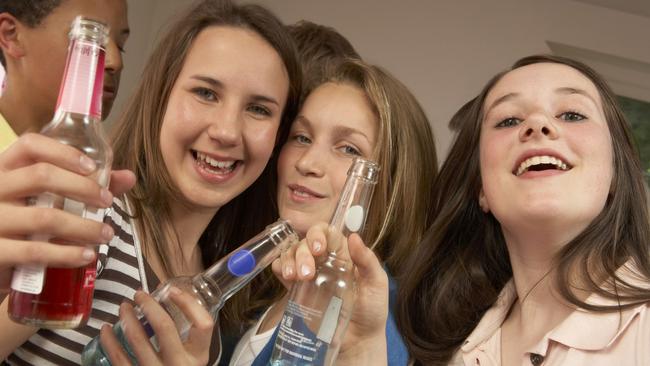Why letting your teen try booze at home is a bad idea
Allowing teens to drink at home with parental supervision has long been believed to encourage young people to adopt safer drinking habits. But a new study reveals parents should beware.

News
Don't miss out on the headlines from News. Followed categories will be added to My News.
Parents should stop giving their kids and teens sips of alcohol because it increases, not reduces, the chance of problem drinking.
An Australian study has found that sipping alcohol with parental consent is associated with more risky drinking compared with those who aren’t allowed to drink at all.
This flies in the face of the popular belief that introducing children to small amounts of alcohol at home is beneficial in teaching them how to drink safely.
Researchers from the National Drug and Alcohol Research Centre at the University of NSW tracked 1900 Australian high school students over seven years to assess their drinking habits.
The children had an average age of 12, and half came from private schools.
Lead author Alexandra Aiken said many parents supplied sips of alcohol to their underage children as a harm-reduction strategy.
But the researchers found that a parental supply of sips in one year was associated with increased risk of binge drinking and alcohol-related harms a year later, compared with no supply.

“As the quantity of alcohol supplied increased, so too did the risk of adverse outcomes,” Ms Aiken said.
“While parents supplying larger amounts of alcohol is associated with worse outcomes, even supplying relatively small quantities such as sips increases the risk of adverse outcomes for adolescents relative to no supply.”
The report shows parental supervised “sipping” was the most common form of alcohol consumption among children and young adolescents.
“Relative to no parental supply, parental supply of even small amounts of alcohol in early adolescence may hasten alcohol initiation, may be perceived by children as permissiveness and approval, and may reduce barriers to alcohol use, all of which in turn might encourage further alcohol consumption,” Ms Aitken said.
“We believe there is now a strong case for the development of a parent-based intervention focused on reducing parental provision of alcohol to their children, including the provision of sips,” she added.
MORE NEWS
STATE INTERVENES IN THREE AGED CARE HOMES
ANOTHER MINISTER DODGES BLAME FOR HOTEL FIASCO

